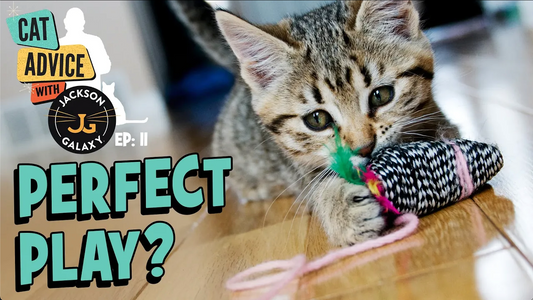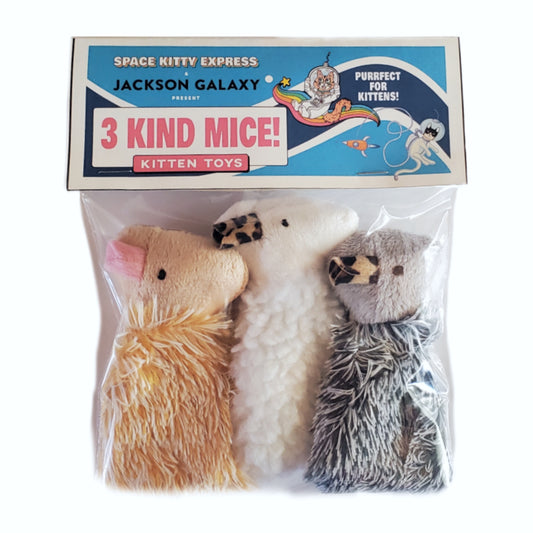
Congratulations! If a kitten has appeared in your life, or if you’re considering adding a new feline family member to your household, you’ll definitely want to consider these important factors.
The Best Place To Adopt A Kitten
Your best bet is to adopt from a shelter or rescue. From May to October (or even later), shelters are inundated with unwanted kittens. Chances are good that you can even find a purebred through these sources. You can find wonderful kittens waiting to be adopted through your local ASPCA, check out Petfinder, or look up a breed rescue group. Petsmart and Petco also support local shelters by sponsoring adoptions through their stores.
Feral cats (whether simply homeless or truly wild) often choose quiet spots in garages or under porches to have their babies. If brought into a home and socialized to people before about 8-10 weeks of age, these kittens can be wonderful companions. For more information on feral cats, Alley Cat Allies is a wonderful resource.
Please, please,
PLEASE never purchase a kitten from a pet store! No matter what the salesperson tells you, it is a stone cold fact that pet stores get their animals from only two places: irresponsible “backyard breeders” who couldn’t be bothered to spay their cat; and commercial mills, where cats spend their lives in cramped, dirty cages with little human contact or veterinary care, solely for the purpose of bringing two or three litters a year into an overcrowded world. Yes, there are kitten mills, although puppy mills are much more common. Persians are common victims of kitten mills. (See Purebred Cat Rescue for more info.) Kittens from either mills or pet stores are likely to have parasites, hidden genetic and health problems, and significant socialization deficiencies. People are often taken in by those pitiful little faces and want to save them, but every well-intentioned “rescue” from a pet store condemns one more mother cat to a horrible life. Suppliers do not care why you bought it–they only know that you just put a big wad of money in their pockets.
Other places where you shouldn’t get a kitten are through newspaper ads, internet classifieds (which are often fronts for kitten mills), and friends whose cat “accidentally” got pregnant. Unplanned breeding is the #1 cause of pet overpopulation in this country. Please urge your friends to get their cat spayed before another “accident” occurs; cats can produce 2 or 3 litters per year.
“Hobby” breeders are a cut above the backyard and accidental breeders, but they are still purposely bringing kittens into a world where many million of homeless animals die in shelters every year in the U.S.
If your heart is set on a purebred cat, do your homework and thoroughly research your breed and the breeder. For instance, purebred cats have notoriously poor immune systems. Persian cats are prone to chronic upper respiratory and ocular diseases, Abyssinians are famous for dental problems, and “wildcat” hybrids like Bengals, Savannahs, and Pixie-Bobs have serious temperament issues as they get older. Make sure the breeder you deal with is reputable, and preferably holistic.
Remember: buying supports cruel mills and irresponsible breeding, but adopting saves lives.
The Top 4 Things You Should Do/Know Before Your Kitten Comes Home
#1-Supplies: Prepare a kitten-friendly environment
You’ll need supplies to set up a “base camp” for your kitten. Especially if you have other pets at home, a “safe” room for the kitten is essential . This can be any a room, such as a spare bedroom or bathroom, or even a large dog crate, where the kitten will spend its first days in its new home. You’ll need: litter box, kitty litter, and scooper to clean the box; food (preferably wet food), and bowls (glass or lead-free ceramic are best); toys; comb and brush; bed (a fluffy towel or blanket will work); toys; and a scratching post. Other items that will come in handy are a carrier, breakaway cat collar, and identification tag.
You’ll also need to kitten-proof the base camp area, and eventually the whole house. Put “child-proof” electric plug protectors in all unused outlets. Remove breakable items from shelves and tables, or secure them with mounting putty (you’ll be amazed how fast and how high a kitten can jump or climb, and grateful that you took precautions!). Cover exposed wires with foam pipe insulation, or wipe with hot chili or Tabasco sauce, to prevent chewing. Remove slatted furniture such as chairs to prevent the kitten from getting his head caught. Tieup blind and curtain cords, and clean up string, ribbon, rubber bands, hair ties, twisties, paper clips, tacks, and other small items that could be swallowed. Be extremely cautious when using a recliner: make sure you know where the kitten is before getting up—too many kittens have been injured or killed by the mechanism. Store house cleaning products, insecticides, etc., out of reach; if needed, install child-proof latches on cabinets. (And consider switching to eco- and kitten-safe household products if you haven’t already!)
#2-Learn How to Communicate and Establish Rules
Animal communicator
Kate Solisti has some sage advice on how to get to know your kitten and establish “house rules” to make life peaceful and fun:
Using mother cat’s communication techniques will work best. From birth until weaning, Mother is everything. She is definitely “She-who-must-be-obeyed,” as well as the source of food and love. But you are now “Mother Cat,” and for a few golden days or weeks, if you’re lucky, your kitten will pay attention to you and want to learn from you. If you make the most of this precious time, you’ll have a loving relationship for life!
When you first bring your kitten home, give her lots of contact. Quiet yourself and get into a loving, soft space with your kitten. Pet her face, starting on the side and sweeping down her body (see Jackson’s post You’re Petting Your Cat All Wrong). This is how Mother Cat grooms. Pay attention to the whole face and think how mother cat would lick her kitten. Now your kitten clearly knows who you are!
Mother cat communicates clearly and decisively, and always with love and clarity. She never punishes. In fact, physical punishment is never appropriate! If your kitten gets into plants, or places you don’t want her to, it makes no sense from her perspective if you yell, which will scare her, or just say “no” without demonstrating what “no” means.
When a kitten goes somewhere she’s not supposed to, Mother cat picks him up and moves him. If you want to mimic Mother cat, gently pick your kitten up by the scruff and calmly take her to where she should be. Put her down and pet her face to tail to let her know that this is where she’s supposed to be. Note:Scruffing should only be used when they are younger than about 10 weeks old. After that, it’s offensive for them to be “treated like a baby!” (But you can make an exception in an emergency if you need to hold or move the cat immediately.)
Your kitten should be isolated from other animals at first; but if you have other pets, eventually you’ll want to introduce them. There’s a right way–and dozens of wrong ways–to accomplish this! Please see Jackson’s post How To Introduce Two Cats.
If kitty’s base camp has a door, keep it closed, but allow both the kitten and other pets can sniff at each other under the door. Feed kitten and the other pets on opposite sides of the door, as close as possible without anyone getting upset or stressed. This establishes an association between all the pets and something good—food!
It’s great to exchange bedding between the kitten and other pets, or rub a towel on the kitten and allow the others to smell it, and vice versa. This way they become familiar with each others’ scents–without the chances for a disastrous physical encounter. You can also change places—resident animal(s) in the kitten’s room, and let kitten explore the rest of the home.
The introduction process may take several weeks. It’s vital that you do not rush it. Let the animals tell you when they’re ready for the next step–usually when all the hissing or growling stops. During this period, give the resident pets a lot of extra love and attention, so they don’t feel like their social status is threatened by the new addition.
Once things simmer down, it’s time to let the kitten out.
If you have a dog, leash it when the kitten is out and about. Most dogs are fine, but occasionally a bouncing, small, furry kitten will trigger the hunting instinct in even the most placid dog. Please understand that you are not fast enough to stop a tragedy, so never allow that situation to occur. Reward the dog for calm, non-aggressive behavior with plenty of praise and treats; this helps the dog associate the kitten with good things.
For the first few weeks, until you are confident in all the animals’ behavior, separate them from the kitten when you are unable to supervise them (when you are out, or sleeping).
#4-Veterinary Care
Kittens need special care from your veterinarian; deworming and tests for infectious diseases such as feline leukemia and FIV (feline AIDS) before meeting resident cats.
Vaccination is controversial, and guidelines have changed. It is no longer necessary to give annual vaccines; but kittens need core vaccines such as distemper (panleukopenia) and rabies to protect them from these fatal diseases. Most kittens do not need leukemia, FIP, or FIV vaccines. Shelters typically give the first panleukopenia vaccine. Talk to your vet about which vaccines are appropriate, and on what schedule. Vaccines should be given one at a time, at least two weeks apart. (See this article on Vaccination for more information.)
If your kitten is not already microchipped, please have this done. Even if you aren’t planning to let your kitten outside, accidents and escapes happen! A microchip is “cheap insurance” that lasts a lifetime. Ideally, have the chip placed slightly off midline to avoid acupuncture meridians, and give a dose of homeopathic Ledum 30C afterward to prevent an adverse reaction.
And finally, if your kitten is not already sterilized, please spay or neuter! It’s better for health reasons as well as to curb pet overpopulation.
This post is by Dr. Jean Hofve, DVM, holistic veterinarian and original founder of Spirit Essences holistic remedies for animals, now known as Jackson Galaxy Solutions.
Check-out these great supplies for your new kitten below!









































